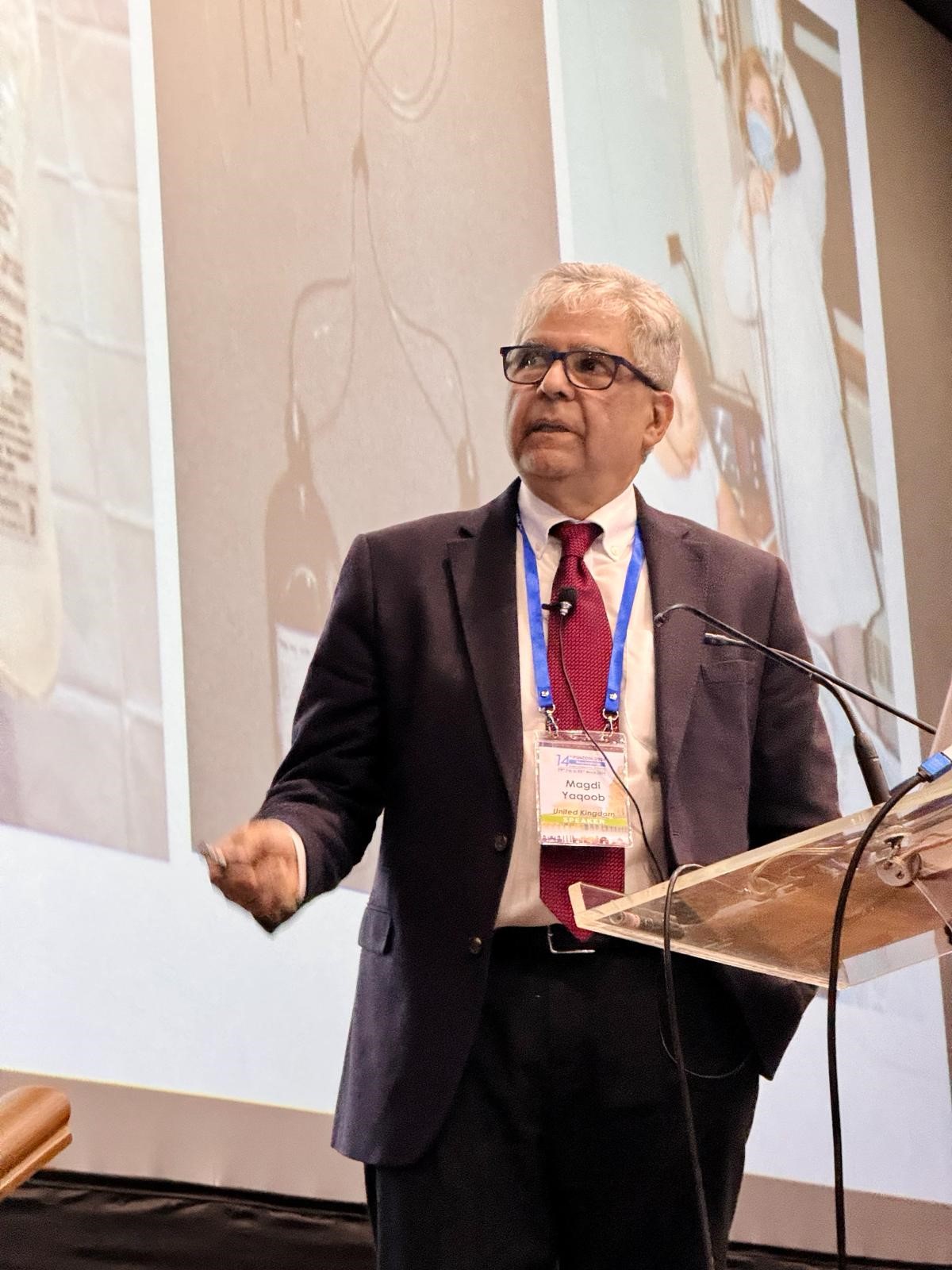Professor awarded prestigious award for reducing health inequalities

Magdi Yaqoob, Professor of Nephrology and Transplantation at The Royal London Hospital and Queen Mary University of London, has been awarded the prestigious Schrier Award for expanding access to kidney care and reducing health inequalities in Bangladesh.
Around 90% of people who need chronic dialysis care live in developing countries where there is not the infrastructure, technology or people to support them.
The Schrier Award, named after renowned kidney doctor Professor Robert William Schrier, is awarded to those who are involved in the International Society of Nephrology (ISN) sister renal unit programme where hospital's support the development of kidney care in developing countries .
Professor Yaqoob and his team received The Schrier Award for their work with sister renal unit, Kidney Foundation Hospital and Research Institute, Dhaka, Bangladesh, which several years ago began as a humble space with just four dialysis machines.
Fast forward to today and the institute is home to 300 beds solely dedicated to kidney care including transplant and intensive care.
On guiding the hospital to where it is now, Professor Yaqoob said:
“Many of the patients we care for in Tower Hamlets are of Bangladesh origin, so knowing we are making a difference in the place that our local community calls home is a proud moment.
“Over eight years, we at The Royal London have built a long standing and trusting partnership with our sister centre, which has resulted in them being recognised by the ISN for the research and training conducted there.
“It is even more pleasing for me to get this award because Professor Schrier was my mentor and I worked under his supervision in Denver, Colorado from 1994-1995.
“Good health and good deeds – kidney care is getting better for the people of Bangladesh.”
